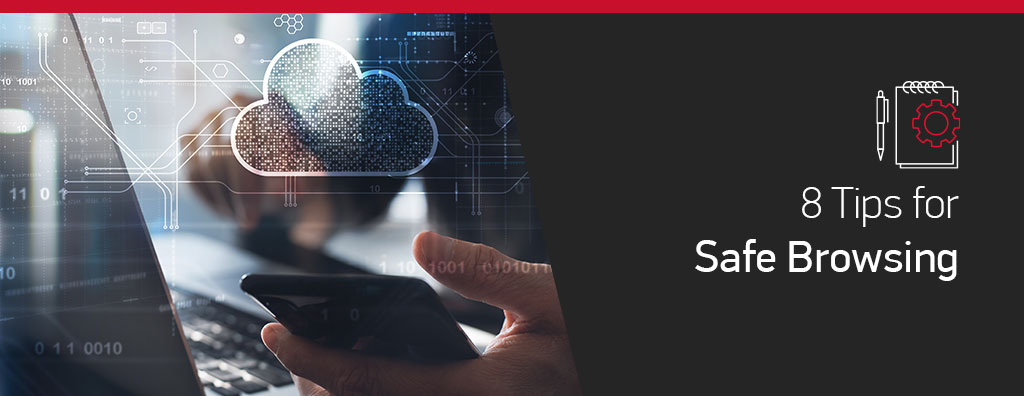
Nowadays, approximately 63% of the world population has access to the internet. Everything we do on the internet leaves a trail, this trail we can call a digital footprint, this digital footprint represents everything we do online, for example when we register on a website we are increasing our digital footprint. And with all the resources available nowadays, it’s very easy.
Do you know how to protect yourself from cyber-attacks?
These 8 tips will help you surf the Internet more safely.
1 – Create strong passwords
Give preference to passwords with special characters, numbers, and lowercase and uppercase letters. Don’t use personal information such as your name or date of birth, otherwise, you’ll make life easier for hackers. Use different passwords for different accounts whenever possible. Never share any of your passwords with anyone, if you can’t memorize all your passwords, then try to use something that manages them for you safely way. Never write down your passwords on paper or in notebooks.
2 – Enable 2-factor authentication where possible.
This way you are preventing that even with access to one of your passwords, no one can access your account without access to that verification.
3 – Avoid connecting to public networks as much as possible.
As the name suggests, these are networks that can be accessed by any malicious person who in a few seconds can have access to all your information, from passwords to bank accounts, etc.
4 – Pay attention to what you publish on the internet
Once published, it cannot be deleted.
We all have a digital footprint, just surf the internet. Every time you post a photo or create an account on a website, that footprint will grow, and it will only increase, never decrease. We advise you to be aware of what you publish on the internet so that it won’t harm you one day later. This advice is not only for social networks but also for everything you share on websites and in groups.
5 – Be careful with the extensions you use
Some extensions are a method of catching/stealing passes that you have stored in your browser, so be careful which extensions you use, and always check to see if these extensions are from reliable sources.
6 – Beware of Phishing emails
Some phishing attacks can be very easy to detect, others not so easy. When in doubt, don’t click on any links or download anything you are not sure is safe. One of the most common characteristics of phishing is the emphasis on an emergency so that the person being targeted feels pressured and doesn’t have much time to think.
7 – Don’t download from untrustworthy sites
By downloading content from unknown sites, you may be giving your computer free access without realizing it.
8 – Backup sensitive information
It is often said, “prevention is better than cure” and that is exactly what we are talking about when we talk about making a backup. We all have information that we keep on our equipment and that is important to keep, it can be passwords, photos, data, settings, among others… One way to avoid losing this most important data is to create backups. Remember that in case your computer/mobile is stolen or lost, or even if you are the target of a cyberattack, having a backup prevents permanent loss.

João Osvaldo
from our InfoSec Team
Share on:






Recent Comments